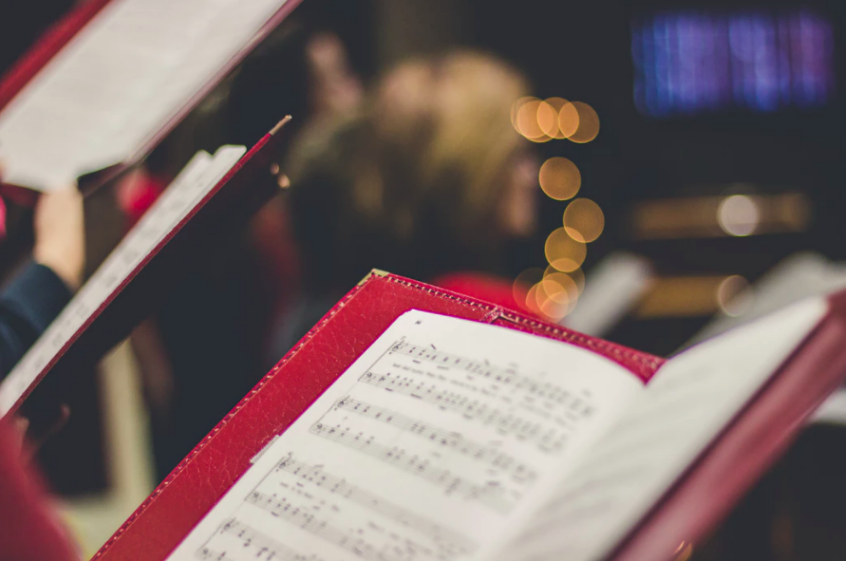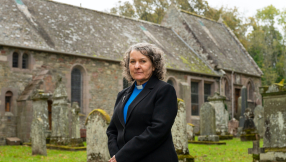Carols, many of them familiar from childhood days, are a huge part of Christmas. The best of them have stood the test of time, often for centuries, and speak timeless truths in memorable words and music. Here are the stories of three of them.

1. O come, all ye faithful
This carol was written in Latin in about 1743 by John Wade, at a time when it was still a language known by every educated person; he probably wrote the melody too, though this is not certain. A hundred years later it was translated by an Anglican priest, Frederick Oakley. It's sometimes called the Portuguese Hymn because it was performed at the request of the Duke of Leeds, a prominent Roman Catholic, at the Portuguese Embassy in London.
It's often been rewritten, with the second verse sometimes sounding odd to modern ears:
God of God, light of light
Lo he abhors not the virgin's womb;
Very God, begotten not created:
O come let us adore him, Christ the Lord.
It's quoting the Nicene Creed; and that line about 'abhoring the virgin's womb' reflects a queasiness in the early Church about the whole business of gestation and birth. Jesus went through the whole messy business for us.
2. Once in royal David's city
This hymn was written by Mrs Cecil Frances Alexander, wife of the Bishop of Armagh and a prolific author. She had been writing religious verse since the age of nine and published this piece in her Hymns for Little Children in 1848 – the year of her marriage to the future bishop. Other favourite hymns by Mrs Alexander are There is a green hill far away and All things bright and beautiful.
The hymn is sung at the beginning of the famous Festival of Nine Lessons and Carols in King's College Chapel, Cambridge, as the processional hymn. The first verse is sung by a boy soprano.
One of the refreshing things about it is the way it acknowledges that as Jesus grew, 'Tears and smiles like us he knew'. He might have been 'mild, obedient, good', but his life was otherwise like ours.
The hymn finishes with a vision of glory in heaven, where children – and it's a children's hymn – shall, crowned like stars, wait around him.
3. The first Nowell
This is a cheerful hymn, probably originally from Cornwall, where 'Nowell' is given as 'O well'. The exact words vary from hymn book to hymn book, but it was first published by the antiquarian William Sandys in 1823, though it's much older than that.
The carol is a story, most of it – all except the first verse, which is about the shepherds in Luke's Gospel – about the visit of the Wise Men to Jesus in Matthew 2.
Noel is French for Christmas, which might be the origin of that version, though some historians say 'Nowell' was an old English word for 'news' – like 'nouvelle' in French. If that's true, it's worth remembering as we sing it: this gospel story is new, because nothing like it had happened before; and it's Good News, because God was coming down in Christ to save the world.
Follow Mark Woods on Twitter: @RevMarkWoods













